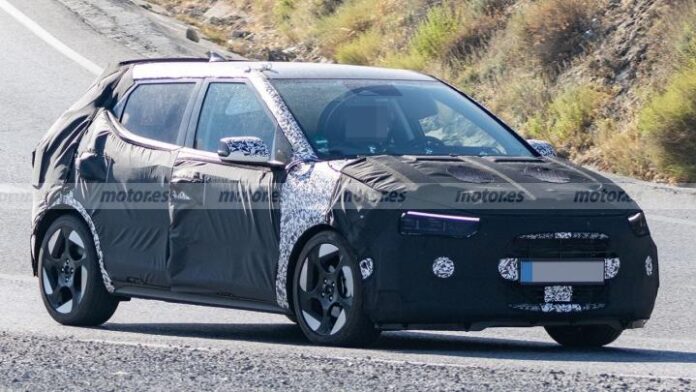Key highlights
- Next-gen Hyundai i20 spied in Europe
- Gets major design changes
- Likely to be offered with a new mild-hybrid engine
Hyundai has begun testing its new-gen i20 in Europe. The i20 is a popular mid-size hatchback in the global market, and its new-gen model is likely to offer big improvements over the current car. Read more details below.
Also read: Mahindra BE 6 Batman Edition 999 units sold in just 135 seconds!
Next-gen Hyundai i20 to be more advanced and spacious?

The recently spotted new-gen i20 test car in Europe shows that the next-generation model will get radical improvements in design and features as compared to the current model. The first visible change in the spy images is the new front fascia with sleek LED headlights, a new front grille, and a redesigned bonnet and bumper combo.
The front windshield shows the ADAS sensors, which means that it will get the autonomous driving assist features. However, we are not sure whether the Indian-spec model will get the ADAS or not.
Meanwhile, the side profile of the new-gen i20 gets a flat roofline like the new Kia EV3. This design change is likely going to increase the rear headroom space inside the car. Moreover, it will offer a distinctive appeal to the rear design of the new model. The test car also has new, bigger dual-tone alloy wheels with a design, along the redesigned ORVMs that appear to be wider and bigger in size.

Speaking of the engine details, not much is known as of now, but the online reports suggest that it will be offered with a new mild-hybrid petrol engine. The new-gen platform is likely to feature a fully electric version as well, which could become the first electric hatchback from Hyundai in India.
As of now, the new-gen i20 is likely to debut by the end of 2026 internationally. Therefore, we can expect the Indian debut sometime in 2027.
Our say
The Hyundai i20 has been one of the top-selling cars in India, and even in some global markets like Latin America. The current-gen model has started to feel outdated, and it will be replaced by a completely new platform in the future.

